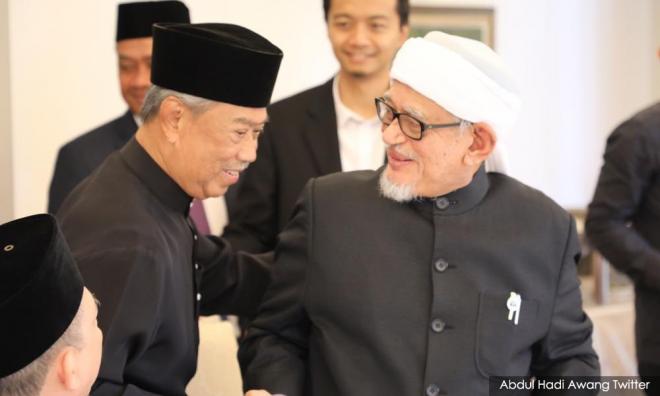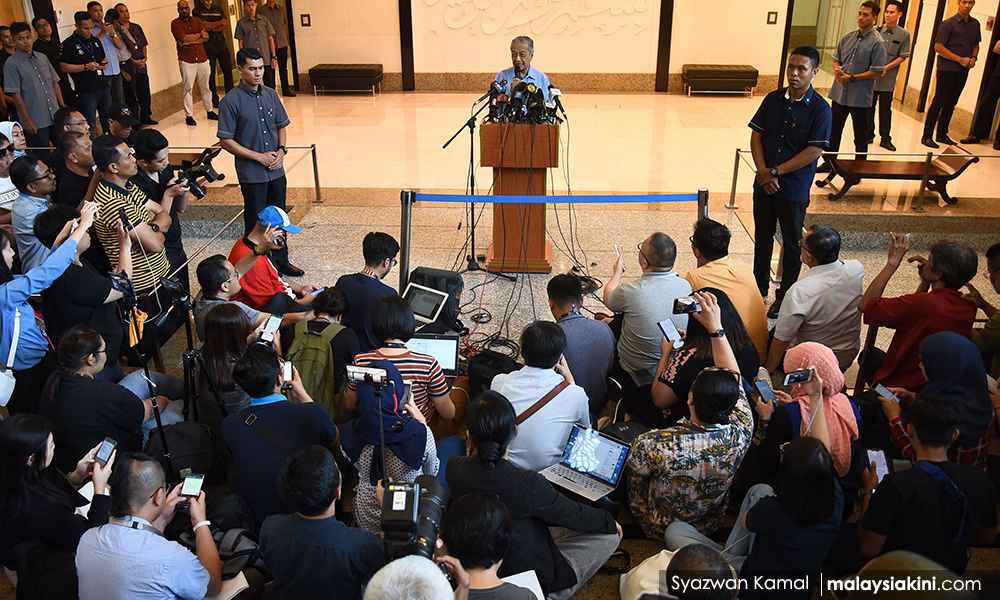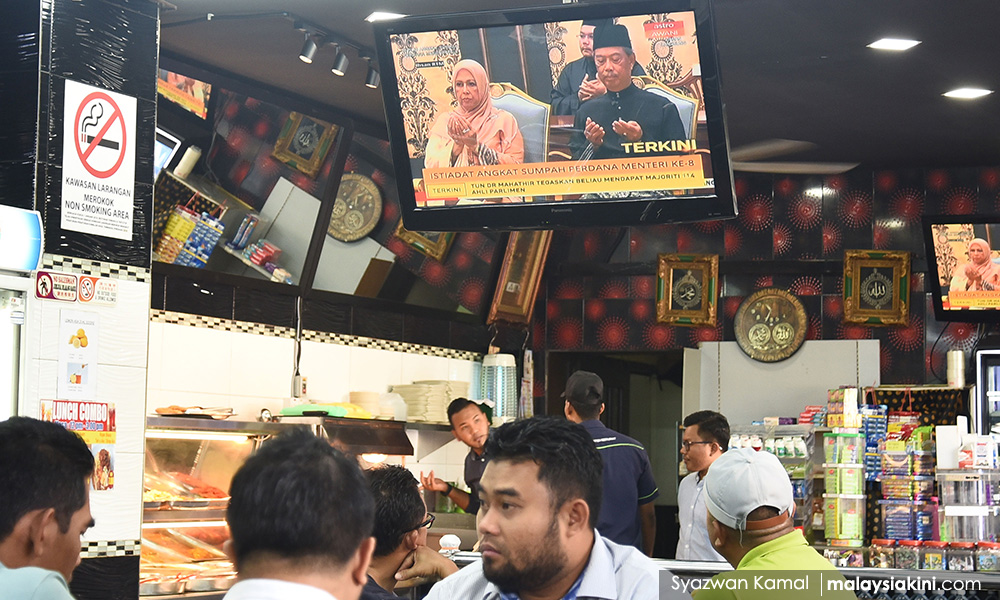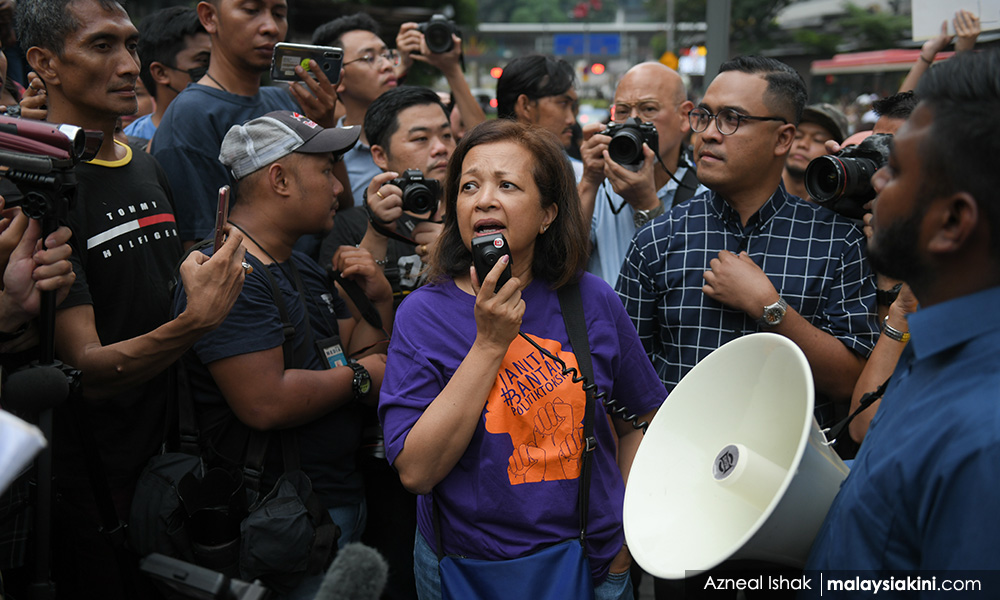
History has long taught us that change is not a linear process. Reforming Malaysia was and is never going to be easy. A week ago, I wrote that a non-Pakatan Harapan coalition tied to Muafakat Nasional involving Umno and PAS would come to power through the backdoor.
I did not predict or even imagine some of the developments that occurred over the last week, as loyalties shifted, the emotional swings, and the degree of personal and political betrayals. While there were moments when the balance moved in favour of more reformist forces, the entrenched interests against reform, internal divisions within the former Harapan and the greed among party elites in the system won out.
The end result is that a new leader is in the Prime Minister’s Office (with the likely fall of a total of four state governments), the system has been badly damaged and the hopes of Malaysians for a more inclusive reform-oriented country have been dashed – for now.
The opposite of what most Malaysians voted for has happened. Malaysia will have a Malay/Muslim nationalist government that will appeal to racial and religious sentiments. There will be a return to pre-GE14 ‘business as usual’.
It will not be the same as before, however. The new government will face serious challenges accommodating the various interests in Malaysia’s complex diverse and demanding society as well as meeting the internal coalition demands.
Ironic outcomes
History will look back on this period with various labels – coup and betrayal are most common. For me, this power grab represents the height of political opportunism. Clever tacticians used the rules, uncertainty and division to their advantage. Others who thought they were clever failed. The key positives of the experience are that this transition remained peaceful and important lessons from this period will be learned.
There are many ironies in the outcomes.
The ‘divide and rule’ politics Mahathir used came back to haunt him as the situation went out of his control. Mahathir damaged his own legacy.

Mahathir was given time to fix some of the mistakes of his earlier tenure but failed to do so. The effects of fostering Islamisation for political legitimacy and relying on a racial paradigm to see Malaysian society as Malay nationalist, well-honed during the Mahathir era, won out.
Divisions between those in power in Harapan allowed the return of the party pushed out of power to come back into power. The second non-Umno-led transition has empowered Umno by putting the same party in the dominant position in terms of numbers in the new coalition.
PAS who gained traction by riding the reform bandwagon after 1998-1999 and joining the Pakatan Rakyat in 2008 which it left in 2015, has finally found a vehicle to power by turning to its old 1970s ally Umno to stop reform.
East Malaysian parties who were so important in building the numbers for either side have not substantially gained position or influence. The government takeover was essentially dominated by Peninsular Malaysians and remains in their hands at least for now.
The issue of the leadership succession to PKR leader Anwar Ibrahim no longer matters. What is at stake in the immediate term is who will succeed Prime Minister Muhyiddin Yassin.
Despite the calls for Malay unity and the advent of a Malay/Muslim nationalist government, the events this week showcase the persistent conflict and division within the Malay/Muslim community.
Perhaps the most important of all, democratic and legal processes were used to bring in what most Malaysians see as denying them their democratic mandate.
Looking ahead
The fight will continue over the public narratives, through legal battles and in parliament – when it sits (which I believe it will eventually).
Harapan will be a stronger opposition than it was in government, in part because many (although not all) of its internal fissures have had a reckoning. The tensions between Mahathir and Anwar remain and unless these leaders are finally able to put aside their differences once and for all for the country, this division will weaken opposition efforts, as it did this past week.
Elite wrangling remains intense, as pressures to jump parties will move from numbers to positions. Apparently lacking a majority, Muhyiddin’s coalition Perikatan Nasional needs strengthening and additional MPs. The drive to be ‘safe’ in politics is strong, given the close tie between livelihoods and politics. It will be hard for some in the opposition to adjust to new realities without position.

Muhyiddin has a very weak mandate – tied at this juncture only to royal approval. He does not have his own political base or control a large party. He is a man beholden to the system and to the parties – Umno and PAS - that helped put him into office. He will be more dependent on the levers of power to stay in power. He will face an uphill task in defining his own leadership, especially given the breadth of public anger against him. He is the first prime minister to come into office with this a lack of broad goodwill.
The new coalition is not yet stable. Perikatan Nasional is comprised of political parties that have two things in common – the want to hold onto power and benefit from being in the position of power. The latter will be a source of tension, as despite greater anti-reform sentiments and shared conservative racialised outlooks, ego and greed remain divisive forces. The cabinet can only be expanded so far, given limited funds. Parties in the coalition have to compromise and the main parties in this new coalition do not have a record of doing so.
Of all the parties in the new coalition, PAS has the most cohesive vision of what it wants to do in power. It has waited 40 years to return to federal government. This party will be dominant in shaping the ideas for governance ahead, as it has already been effective in transforming the Malay nationalist narrative to a Muslim dominant one. It has a deeply religious son of a cleric as prime minister, whose weak legitimacy will enhance the use of race and religion to legitimise his tenure. This will foster tensions within the coalition.
The elites in the former government largely took the support of the people for granted. The new government will likely be the same. Ironically, the groups they claim to represent may be the hardest hit as limited revenue will encourage symbolic rather than substantive policy outcomes.
The focal point of the new coalition’s success will be centred on its ability to manage an underperforming economy. This was one of Harapan’s main weaknesses after its politicking. Building confidence for investment and new sources of growth will involve improving governance and reform, which is in direct conflict with letting off those who stole from Malaysians while in office go free.
Deeper cynicism
These events, while showcasing the lack of power of ordinary people, will serve to rejuvenate public engagement. Civil society and the public at large will mobilise to push and defend democracy and forces will continue to mobilise for more inclusion, in what will inevitably be a more exclusivist conservative and defensive government.

At the same time, this week has deepened cynicism against elites across the political divide. The reality is that many Malaysians are exhausted with politics and will turn away from political parties and leaders. There will also be more moves toward people solving their own problems rather than relying on elites to do so.
It will take time to rebuild the sense of hope that drove ‘new Malaysia’ but the sentiments of ‘Malaysian’ identity and the hope for a better future remain alive. Having tasted the possibility of a ‘new Malaysia’ that filled the greater democratic space with new ideas, attention will now centre on the future.
Malaysia has shown resilience and the overwhelming majority continues to have aspirations for a different future. New leaders will emerge from this experience as they did in reformasi, and be part of a much-needed group of new leaders with new ideas.
The last week has shown how much reform was needed to strengthen and democratise Malaysia’s political institutions. Elections are in three years, which in the history of the country and its struggle for a different future, is not that far away.
BRIDGET WELSH is a Senior Research Associate at the Hu Feng Centre for East Asia Democratic Studies, a Senior Associate Fellow of The Habibie Centre, and a University Fellow of Charles Darwin University. She currently is an Honorary Research Associate of the University of Nottingham, Malaysia's Asia Research Institute (Unari) based in Kuala Lumpur. - Mkini


No comments:
Post a Comment
Note: Only a member of this blog may post a comment.